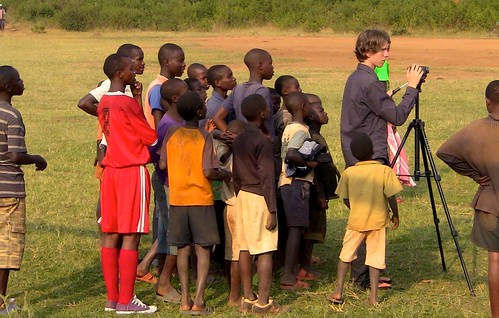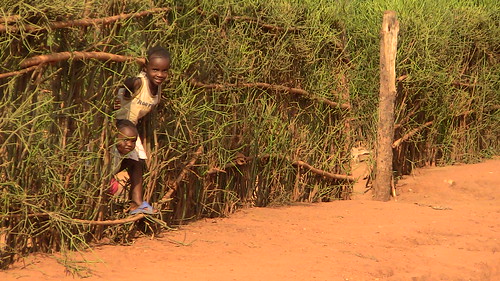On the 15th of August we took a car through the Rwandan countryside from Kigali to Rwinkwavu, a dry region in the impoverished southeast of the nation. The change from the city, which has developed strikingly in the past three years since I was last here, to the gorgeous but destitute country was dramatic.
Once we arrived, we began with taking some stock footage of the region, footage that we hope will simultaneously reveal both the incredible beauty and the extreme poverty of Rwinkwavu while also exploring various aspects of Rwandan culture and the central theme of soccer. We took most of this footage simply on the streets of the villages, capturing colorfully dressed people on their way to the fields, people driving rusty bikes laden with massive cartons of bananas or sticks or water, and the many small children gathering around us to wonder at these strange people wearing strange clothes and carrying strange tools. That's one of the most shocking aspects of any trip to Rwanda: the multitudes of dusty, emaciated kids shouting 'mazungu!' (Kinyarwanda for white man) at us and following us wherever we go, practicing their limited English and French on us, and laughing at our strangeness.
Here's a photo of two kids, scared of us but still curious
Here's a photo of two kids, scared of us but still curious
and another one of a crowd of kids fascinated by me with a camera and tripod

